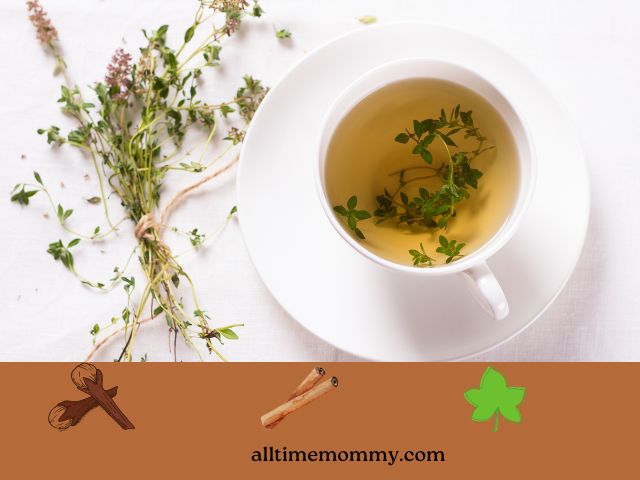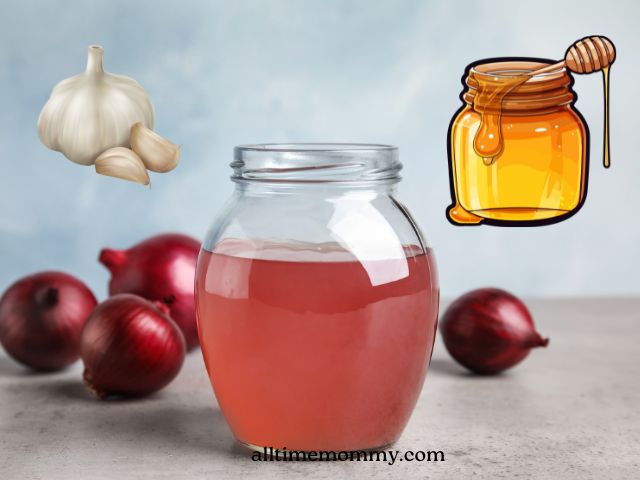Discover effective natural cough remedies for adults that can soothe your throat and ease coughing discomfort. From honey and ginger herbal teas, explore safe and simple ways to relieve your cough at home instantly.
Do you ever notice how coughs strike more often when you’re in public?
It’s not just your imagination.
Research shows that the social pressure to suppress a cough can actually make you more aware of the tickle in your throat, making you cough more often.
This “public cough phenomenon” can turn a simple irritation into an all-out spectacle, drawing unwanted attention and making you feel even more uncomfortable.
Luckily for the public cough phenomenon, most geniuses reach out for a glass of water, which does wonders.
But while a warm glass of water might offer temporary relief, a chronic cough can be far more than just a nuisance.
It can disrupt your sleep, affect your daily activities, and leave you feeling downright miserable.
And not Just that.
A cough can often be more than just a symptom. It can result from underlying issues like allergies, infections, or even chronic conditions.
In fact, according to Research Gate, coughing is simply a natural reflex that helps clear the airways of irritants and mucus to maintain respiratory health.
If it persists, it could be a symptom of an underlying disease, including respiratory infections, allergies, asthma, and chronic obstructive pulmonary disease (COPD).
Thankfully, there are a number of natural and powerful remedies that can help you find cough relief.
From soothing herbal teas to homemade honey syrups, these remedies can ease your symptoms and get you back on the path to wellness.
In this blog, we’ll explore various strategies for tackling that stubborn cough head-on so you can breathe freely and enjoy each day to the fullest.
So, let’s dive into these.
Affiliate Disclosure: As an Amazon Associate, I get a small commission for purchases made from Amazon.com through links in this post. Learn more about our affiliate disclaimer here.
10 Natural Cough Remedies For Adults That Actually Work
1. Clove and Honey Cough Remedies
When it comes to healing a dry and persistent cough, clove and honey are two natural remedies that pack a powerful punch.
Here’s how each ingredient works its magic to provide relief:
Clove: The Natural antibiotic
Cloves are a spice with a rich history of medicinal use. They contain eugenol, a compound known for its anti-inflammatory, analgesic, and antiseptic properties.
According to a study, eugenol can kill a wide range of bacteria and viruses.
Cloves’ antimicrobial properties can help combat the bacteria or viruses causing coughs, making you feel better instantly.
In another study, clove oil was found to have antibacterial activity against bacteria that cause respiratory infections when added to a liquid culture or introduced as a vapor.
Honey: The Soothing Elixir
Honey has been my all-time cough remedy, especially when it comes to kids.
Why?
Research shows that honey is a natural sweetener with anti-inflammatory and antibacterial properties that suppress cough. Honey forms a protective layer over the throat, which helps to coat and soothe irritation and inflammation.
How to Use Clove and Honey for a Cough
A simple way to use these ingredients is to mix ground cloves with honey to make a paste. Take a small spoonful of this mixture several times a day, or stir a pinch of ground cloves into a warm cup of honey and sip slowly to reduce the frequency and severity of your cough.
How to Make Your Clove Powder At Home
- Take about 1 tablespoon of cloves.
- Heat them on a low heat for about 5 minutes.
- Grind them in an electrical seed grinder like this one until you get the finest powder. You may sieve to ensure that there are no big particles that have not been finally ground.
- Take a teaspoon of freshly ground cloves.
- Mix with a teaspoon of raw organic honey in ajar (I prefer Nete’s Pure unfiltered honey).
- Leak slowly for about ten minutes.
- You may repeat your dose twice a day.
Shop for your Seed Grinder and organic unfiltered honey here
Related:
How To Kill a Sore Throat Fast at Home with Remedies That Actually Work
2. Dried Organic Thyme Tea with ( Ivy leaf, Clove, Cinnamon bark)
According to this study, the thyme-ivy combination can be a super home remedy for coughs in adults.
Making a homemade remedy for cough using thyme, clove, cinnamon bark, and ivy leaves is simple yet very effective.
Benefits:
- Thyme: This is a herb from the mint family and Acts as an expectorant, helping to loosen mucus.
- Cloves: They have antibacterial and analgesic properties, which can help with sore throats and infections.
- Cinnamon Bark: Contains anti-inflammatory properties and can help with respiratory issues.
- Ivy leaf is also a good expectorant that works best when combined with thyme.
How to Make Thyme Tea Combo For Cough
Ingredients:
- A small handful of dried thyme
- 3-4 whole cloves
- One to two sticks of cinnamon bark
- 2-3 leaves of ivy leaves
- 1-2 cups of water
- Honey (optional, for sweetness)
Preparation
-
- Boil 1-2 cups of water in your small pot.
- Once the water is boiling, add the organic dried thyme, cloves, ivy leaves, and cinnamon bark to the pot.
- Reduce the heat to low and let the mixture simmer for about 10 minutes. This allows the herbs and spices to release their beneficial properties.
- After simmering for about 10 minutes, strain the mixture and descade the solids.
- You may add a teaspoon of honey to sweeten the drink. Honey has additional soothing properties and can help with cough relief.
- Drink the remedy while it’s still warm. For cough relief, take this mixture 2-3 times a day as needed.
Chew the dried thyme
-
- You may consider chewing a ¼ teaspoon of these dried organic thyme leaves for quick relief.
Related:
7 Powerful Natural Remedies For Bloated Stomach and Gas
3. Mullein Tea for Cough
Mullein tea is a popular herbal remedy known for its effectiveness in treating respiratory issues, including coughs.
According to research, Mullein contains expectorant properties, which can loosen and reduce the production of mucus from the respiratory tract.
Some studies suggest that Mullein has mild antiviral and antibacterial properties. The plant also contains compounds like saponins and flavonoids, which have anti-inflammatory effects.
These compounds may help fight infections that cause coughs, common cold, or bronchitis.
Mullein’s demulcent properties help form a protective film over mucous membranes, which can reduce irritation and calm a cough. It also makes it easier to clear congestion, reducing the frequency and severity of coughing.
How to Use Mullein Tea for Cough
Preparation
- To make mullein tea, steep 1-2 teaspoons of dried organic mullein leaves (and flowers) in boiling water for 10-15 minutes.
- Strain the tea carefully through a fine mesh, sieve, or cloth to remove any small hairs from the plant, which can be irritating if ingested.
- Drink the tea 2-3 times a day, especially when you feel a cough coming on or before bed, to help ease nighttime coughing.
Precautions
- Allergies: Some people may be allergic to Mullein, so it’s important to start with a small amount to see how your body reacts.
- Pregnant and nursing moms should consult a healthcare professional before using mullein tea.
- Quality of Herbs: To avoid any potential adverse effects, ensure you are using high-quality, properly identified mullein leaves or flowers.
Related:
12 Lazy Girl Weight Loss Hacks For Weight Watchers that Actually Work
4. Onion Syrup (garlic, onion, and honey) cough Remedies
According to this study, onion syrup is a time-tested natural remedy for coughs, especially effective for mild to moderate symptoms.
It’s easy to make at home and safe for most people.
The syrup works by utilizing the natural properties of onions and honey to soothe the throat and reduce coughing. The combination of garlic and red onion helps to break down and expel mucus, making it easier to breathe and reducing coughing.
Why?
Because garlic and onions have natural antimicrobial properties that fight against the bacteria and viruses that cause coughing.
Honey in the syrup helps to soothe an irritated throat.
Here’s how to make it:
How to Make Onion Syrup for Cough
Ingredients:
- 2 large onions ( red or white finely sliced)
- Several cloves of garlic
- Organic raw honey (enough to cover the onion slices)
Instructions:
-
- Wash your onions thoroughly and slice them finely into thin rings or small pieces, including the skin.
- Cut the garlic cloves into smaller pieces.
- In a clean jar or bowl, place a layer of garlic and onion slices.
- Cover the onion layer with honey. Pour a generous amount of honey over the slices to coat them well.
- Mix them well.
- Cover your jar and let your syrup sit at room temperature for several hours or overnight. The onion releases its juices, which are mixed with the honey to create a syrup.
- Store the onion syrup in a sealed jar in the refrigerator. It should last for about a week.
Dosage: Take one tablespoon of the syrup every few hours as needed to help relieve coughing. It can be taken straight or mixed into a warm drink like tea.
Related:
How To Get Rid Of Yeast Infection In Just 3 Days Using Home Remedies
5. Chest Massage with Eucalyptus Oil
Chest massage with pure and natural eucalyptus oil can be an effective way to relieve a cough by loosening mucus, reducing inflammation, and improving breathing.
The soothing effects of the massage combined with the therapeutic properties of eucalyptus oil can provide relief from coughing and promote overall respiratory health.
Studies suggest Eucalyptus oil contains a compound called eucalyptol (1,8-cineole), which has potent decongestant properties.
When applied to the chest, the oil helps to loosen mucus, clearing the airways and making it easier to expel through coughing.
Also, Eucalyptus oil has anti-inflammatory properties that can help reduce inflammation in the respiratory tract. This can soothe irritated tissues in the throat and lungs, reducing the urge to cough.
How to Use Eucalyptus Oil for Chest Massage
- Dilute the Eucalyptus Oil
Eucalyptus oil is very potent and should be diluted with carrier oil (like coconut oil for massage before applying it to the skin. Use about 3-4 drops of eucalyptus oil per tablespoon of carrier oil.
- Apply to the Chest
Rub the diluted eucalyptus oil mixture onto the chest and upper back. Massaging gently in circular motions can also enhance the oil’s penetration into the skin.
- Inhale the Vapors
As you massage, inhale the eucalyptus oil vapors. This will help clear the nasal passages and improve breathing.
- Cover the Chest:
After massaging, you can cover your chest to enhance the soothing effects and help the oil absorb better.
Precautions:
- Skin Sensitivity: Always dilute eucalyptus oil before applying it to the skin to avoid irritation.
- Asthma: People with asthma should use eucalyptus oil with caution, as it can sometimes trigger symptoms.
- Make sure you buy pure and natural eucalyptus oil to avoid any complications.
6. Bay Leaves Tea with (cinnamon bark, cayenne and honey)
Bay leaf tea combined with clove, cinnamon bark, cayenne, and honey can be a helpful natural remedy for cough in adults due to the various properties of each ingredient:
Studies show that bay leaves have anti-inflammatory, antimicrobial, and antiviral properties, which can help break up mucus, soothe the respiratory tract, and reduce irritation that causes coughing.
Cloves also contain eugenol, a compound with antiseptic and anesthetic properties. This can help numb the throat, reduce pain, and minimize coughing.
Cinnamon has antibacterial and antiviral properties. It can help fight off the underlying infection causing the cough and also has a soothing effect on the throat.
Cayenne contains capsaicin, which can help thin mucus and relieve congestion. It also stimulates circulation, helping to clear out the respiratory passages.
Honey is a well-known remedy for coughs. It has antimicrobial properties and can coat and soothe the throat, reducing irritation and coughing.
How to Prepare Bay Leaves Tea For Cough
- Boil water and add bay leaves, a small piece of cinnamon bark, and a pinch of cayenne pepper.
- Let it simmer for 10-15 minutes.
- Strain or sieve the tea and add honey to taste.
- Drink it warm to soothe your throat and relieve cough symptoms.
- This tea can be taken 2-3 times a day until symptoms improve.
Related:
7 Hacks To Help You Beat Sugar Cravings Fast
7. Ginger Juice, Lemon and Honey
Ginger juice, lemon, and honey are a popular natural remedy for coughs due to their combined therapeutic properties.
Ginger Juice has Anti-inflammatory Properties and Antimicrobial Effects derived from compounds like gingerol that help reduce inflammation in the throat and respiratory tract, easing cough.
Lemon is rich in vitamin C.
Consuming lemon helps to supports the immune system and fight infections. It also has a mucolytic Effect. The acidity of lemon will definately help break down mucus, making it easier to clear your chest and relieve congestion.
Honey is a natural cough suppressant. It coats the throat, reducing irritation and the urge to cough.
Additionally, honey has natural antimicrobial properties that can help fight off bacteria and viruses.
How to prepare ginger-lemon-honey combo for cough
Ingredients:
- 1 tablespoon of fresh ginger (grated or juiced)
- 1 tablespoon of fresh lemon juice
- 1 tablespoon of honey
- 1 cup of hot water (optional, if you prefer it as a warm drink)
Instructions:
- Grate about a 1-inch piece of fresh ginger and strain it to extract 1 tablespoon of ginger juice. Alternatively, you can juice the ginger if you have a juicer.
- Cut and squeeze your lemon to get lemon juice
- In a small bowl or cup, mix the ginger juice, lemon juice, and honey until well combined, and take the combo
- Alternatively, if you prefer to take this remedy as a warm drink, add the mixture to 1/2 medium-sized cup of warm water, Stir well to dissolve the honey and drink while warm
- For best results, take this 2-3 times a day, especially before bedtime, to help soothe nighttime coughing.
Related:
9 Best Toothache Relief Home Remedies That Work Instantly
8. Check on your Vitamin D and B12 Levels
Some coughs persist and reoccur as a result of nutrition deficiency. According to Science Direct, low levels of vitamin B-12 (cobalamin) deficiency (Cbl-D) might play a role in chronic cough by inducing sensory neuropathy.
Some studies also suggest that low levels of vitamin D can cause persistent respiratory problems, including coughing.
9. Stop Dairy and Gluten
Stopping dairy and gluten can help reduce coughing, particularly if the cough is related to allergies, sensitivities, or conditions like asthma or acid reflux.
Consuming dairy can cause inflammation in those who are allergic or sensitive to it, leading to respiratory issues that manifest as coughing, wheezing, or a sore throat.
Some people with gluten sensitivity experience postnasal drip, which can trigger a cough.
If you have a chronic cough that isn’t linked to a clear cause, eliminating dairy and gluten might help.
Related:
10 Worrying Symptoms of Too Much Sugar In Your Body You Shouldn’t Ignore
10. Treat Parasites
Some parasites, like roundworms (Ascaris) and hookworms, have a life cycle that involves migrating through the lungs. When they pass through the lungs, they can cause irritation, inflammation, and coughing as part of their migration.
Parasites such as Strongyloides stercoralis and Toxocara canis can also lead to coughing when their larvae migrate to the lungs, causing a condition known as Loeffler’s syndrome.
DISCLAIMER The information contained in this post is for general information purposes only. I’m not a health practitioner and as such, this information should not be used as a substitute for consultation with your professional service provider.
UP NEXT:






